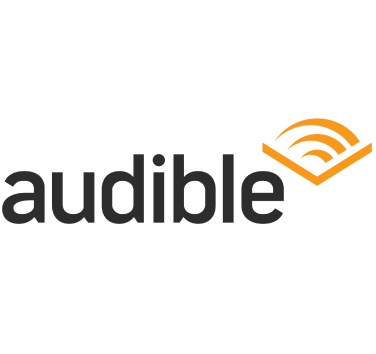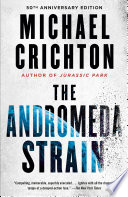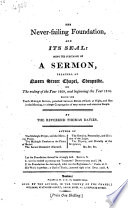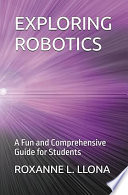If you’re looking for authors like Michael Crichton, the writers on our list will satisfy your craving for science-driven thrillers. Discover your next favorite in our comprehensive guide.
Michael Crichton was a Harvard-educated author and movie producer who grew up in Roslyn, New York. The son of a journalist, Crichton was always encouraged to write. After becoming discouraged by the English program at Harvard, he traveled through Europe before returning to Harvard as a medical student. While pursuing his M.D., Crichton continued writing under various pseudonyms. With his medical degree in hand, he ditched the idea of becoming a doctor and moved to Los Angeles to pursue writing full-time.
There, Michael Crichton achieved acclaim as both writer and filmmaker. He’s the creative genius behind ER, the groundbreaking television series, and directed numerous blockbuster movies including Coma, Westworld, The First Great Train Robbery, and of course, Jurassic Park. Before his death in 2008, he wrote 26 bestselling novels, many adapted into major films like Congo, The Andromeda Strain, and Timeline.
His books typically explore the theme of humanity versus technology, highlighting the covert dangers of scientific advancement with explosive, often catastrophic results. In 2025, as AI and biotechnology continue advancing at breakneck speed, Crichton’s cautionary tales feel more relevant than ever.
Here Are The Best Authors Like Michael Crichton
1. Isaac Asimov (1920-1992)
Isaac Asimov was a prolific science fiction writer who produced over 500 novels and short stories. His Foundation and Robot series explore themes similar to Michael Crichton’s work, particularly the complex relationship between humanity and artificial intelligence.
The Robot series spans decades, from the 1940s through the 1980s, investigating human-robot interactions and the ethical implications of creating sentient machines. Set in a future where robots have become essential to human civilization, these stories feel remarkably prescient in our current age of AI development.
In 2025, as we grapple with ChatGPT, autonomous vehicles, and AI safety concerns, Asimov’s Three Laws of Robotics remain a cornerstone of discussions about artificial intelligence ethics.
“Since when is the evidence of our senses any match for the clear light of rigid reason?” — Isaac Asimov, I, Robot
2. James Rollins (1961-)
James Rollins writes action-packed, science-based thrillers that frequently draw comparisons to Michael Crichton’s work. His novels blend cutting-edge science, historical mysteries, and globe-spanning adventures at a breakneck pace.
Many of Rollins’ stories follow Sigma Force, a fictional elite covert-ops team investigating scientific mysteries and stopping dangerous conspiracies. The Doomsday Key exemplifies this approach, featuring the team investigating murders linked to an ancient, deadly substance threatening humanity’s future.
What sets Rollins apart in 2025 is his incorporation of real, emerging technologies. Recent novels explore CRISPR gene editing, quantum computing, and climate engineering—making his thrillers feel ripped from tomorrow’s headlines.
“As Martin huddled deeper into his heavy cloak, he remembered the note secured by wax and imprinted by the great royal seal.” — James Rollins, The Doomsday Key
3. Ian McDonald (1960-)
British science fiction writer Ian McDonald crafts stories that examine technology’s impact on society and culture. Like Crichton, McDonald explores how scientific advances affect human behavior, but with a more focused lens on social and cultural implications rather than pure technical details.
The Dervish House, set in near-future Istanbul, follows interconnected characters caught in events involving nanotechnology, terrorism, and political intrigue. McDonald’s work particularly resonates in 2025 as we witness how emerging technologies reshape social structures worldwide.
His recent works explore cryptocurrency, virtual reality, and the social implications of climate technology—themes that feel urgently contemporary.
“The white bird climbs above the city of Istanbul: a stork, riding the rising air in a spiral of black-tipped wings.” — Ian McDonald, The Dervish House
4. Robin Cook (1940-)
Like Michael Crichton, Robin Cook trained as a physician—practicing as a surgeon and ophthalmologist before turning to writing. While his first novel didn’t capture audiences, he went on to write Coma, one of the bestselling medical thrillers of all time.
Coma explores the dark world of illegal organ harvesting from healthy patients—a theme that feels disturbingly relevant in 2025 as we face ongoing debates about organ markets, medical tourism, and bioethics.
Cook’s medical background lends authenticity to his exploration of healthcare’s dark side, from pharmaceutical conspiracies to genetic manipulation. His recent works tackle contemporary issues like CRISPR babies, AI diagnostics, and medical data privacy.
“Nancy Greenly lay on the operating table on her back, staring up at the large kettledrum-shaped lights in operating room No. 8, trying to be calm.” — Robin Cook, Coma
5. Richard Preston (1954-)
Preston writes both non-fiction and fiction focusing on infectious diseases and bioterrorism. His novel The Cobra Event fictionally explores a bioterrorist attack, while The Hot Zone (adapted into the film Outbreak) examines real viral threats.
Rather than exploring humanity versus machines, Preston investigates how humans weaponize biology against each other. In our post-pandemic world of 2025, his work feels prophetic—exploring gain-of-function research, lab security, and the potential for engineered pathogens.
Preston’s meticulous research into virology and epidemiology creates terrifyingly plausible scenarios that blur the line between fiction and scientific possibility.
“The blood clock turned slowly, moving the blood jelly past a slit exposed to the open air.” — Richard Preston, The Cobra Event
6. Dan Brown (1964-)
Dan Brown has authored numerous bestselling thrillers. While most involve religious symbolism, several novels closely parallel Crichton’s technology themes: Origin, Digital Fortress, and Deception Point.
Like Crichton, Brown conducts extensive research to ground his novels in scientific reality, creating believable situations and characters. His recent work Origin explores artificial intelligence and the intersection of technology with human consciousness—themes central to 2025’s AI revolution.
Brown’s fast-paced thrillers combine cutting-edge science with historical mysteries, creating page-turners that educate while they entertain.
“Sometimes, all you have to do is shift your perspective to see someone else’s truth.” — Dan Brown, Origin
7. Daniel H. Wilson (1978-)
Daniel H. Wilson is a robotics engineer turned author, bringing unique technical expertise to his science fiction. His background in robotics engineering gives his work scientific credibility that readers appreciate.
Wilson’s Robopocalypse series explores artificial intelligence, machine ethics, and technology’s consequences for society. Published before the current AI boom, these novels feel remarkably prescient in 2025 as we grapple with large language models, autonomous weapons, and AI alignment.
His engineering background allows him to craft technically accurate scenarios while maintaining the thriller pace that Crichton fans love.
“No matter how much kids beg to be treated like adults, nobody likes to let go of their childhood.” — Daniel H. Wilson, Robopocalypse
8. Andy Weir (1972-)
Andy Weir began writing science fiction on his website before his breakthrough novel The Martian became a bestseller and blockbuster film starring Matt Damon. Weir writes full-time, creating hard science fiction similar to Crichton’s style and themes.
What sets Weir apart is his commitment to scientific accuracy. Every problem in The Martian has a real scientific solution, making the impossible feel achievable. His subsequent novels Artemis and Project Hail Mary continue this tradition of rigorous scientific problem-solving.
In 2025, as space tourism and Mars colonization move from fiction to reality, Weir’s work provides both entertainment and insight into humanity’s space-faring future.
“Yes, of course duct tape works in a near vacuum. Duct tape works anywhere. Duct tape is magic and should be worshiped.” — Andy Weir, The Martian
9. Peter Benchley (1940-2006)
Peter Benchley was an American author and screenwriter best known for Jaws, which became Steven Spielberg’s blockbuster film. Published in 1974, Jaws sold over 20 million copies worldwide, telling the story of a great white shark terrorizing a New England beach town.
While Benchley’s books didn’t focus on technology, their fast-paced, suspenseful style appeals to Crichton fans. Both authors excelled at taking natural or scientific phenomena and turning them into edge-of-your-seat thrillers.
In our climate-changed world of 2025, Benchley’s exploration of nature’s power and humanity’s vulnerability to environmental forces resonates strongly.
“Intellectually, they knew a great deal. Practically, they chose to know almost nothing.” — Peter Benchley, Jaws
10. Carl Sagan (1934-1996)
Carl Sagan was a renowned scientist, science communicator, and author who wrote several works of fiction alongside his scientific career. His novel Contact tells the story of scientist Ellie Arroway, who discovers a radio signal from an extraterrestrial civilization.
The book explores the scientific, philosophical, and theological implications of this discovery, as well as the challenges Ellie faces convincing the world of her find’s validity. Like Crichton, Sagan grounded fantastic concepts in rigorous scientific thinking.
In 2025, as we continue searching for extraterrestrial life and developing SETI technologies, Contact remains remarkably relevant to our ongoing quest to answer the question: Are we alone?
“For all the tenure of humans on Earth, the night sky had been a companion and an inspiration.” — Carl Sagan, Contact
These authors continue Michael Crichton’s tradition of blending cutting-edge science with compelling storytelling, creating thrillers that both entertain and enlighten. In our rapidly advancing technological age, their cautionary tales and scientific speculation feel more relevant than ever.

